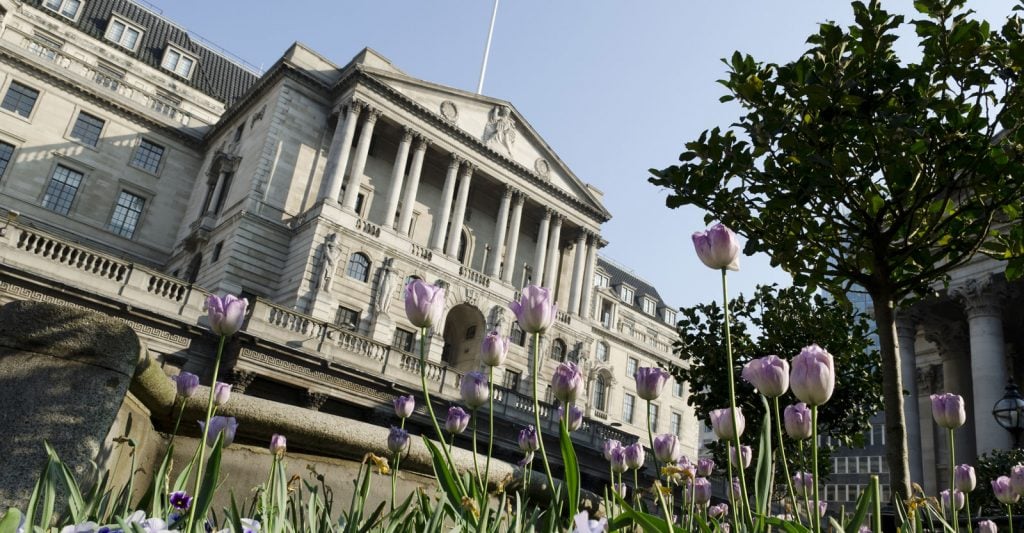For investors evaluating financial institutions, the climate crisis
will soon become a key consideration. Our research shows there is
already a wide dispersion between the sector leaders and laggards
In his historic 2015 speech, Mark Carney,
then Governor of the Bank of England,
invoked the spectre of a “Minsky moment”,
a climate-driven collapse in asset prices.
Back then his words seemed dystopian, a
distant prospect. Today, however, they look
more prescient.
A broad spectrum of central banks fear
climate change could spark the next
financial crisis. For this reason, regulators
in Europe and the UK are already beginning
to scrutinise banks’ resilience to climate
change – looking into both the likely
stresses from the shift to a zero-carbon
economy over the coming decades, and
the impact of extreme weather.
For now, though, central bankers’ anxiety
is not reflected in fixed income or equity
markets, which seem relatively unaffected
by climate risk. Yet over the next few years
climate change could become a key driver
of financial performance and an important
factor for investors evaluating banks.
Even in the short term there are risks to
earnings, while in the medium term it is
likely that banks judged to have higher
climate-related exposures will face higher
capital requirements, not to speak of
reputational risks.
For now, though, central bankers’ anxiety
is not reflected in fixed income or equity
markets, which seem relatively unaffected
by climate risk. Yet over the next few years
climate change could become a key driver
of financial performance and an important
factor for investors evaluating banks.
Even in the short term there are risks to
earnings, while in the medium term it is
likely that banks judged to have higher
climate-related exposures will face higher
capital requirements, not to speak of
reputational risks.
But this is not just a question of risk.
Looking ahead a few years, there may also
be opportunities for the banks that lead
the financing of the transition to a zerocarbon
economy. Indeed, it is estimated
that green investing and financing could
harvest as much as $50 billion of revenue
over the next five to 10 years.1
Drivers of change
As climate change becomes a definingtopic, we believe it will soon no longer
be enough for banks to make highlevel
climate pledges. Under mounting
scrutiny they will have to improve
climate risk disclosure, show that
climate considerations feed through into
underwriting standards and reduce their
carbon footprints.
Although the extent of banks’ lending
exposure to fossil fuels is relatively
modest – carbon-intensive sectors to-date
represent less than 10% of European
banks’ lending exposure – a climate crisis
could increase banking system losses
by up to 60%, according to European
Central Bank (ECB) calculations,2 and
impact earnings as fossil fuels account
for 10%-15% of global wholesale banking
revenues.3
Already reputational risk is rising. Take the
criticism of JP Morgan Chase in 2020 for
its energy lending.4 It was revealed as the biggest financier of fossil fuels globally
in a report compiled by a collaboration of
non-governmental organisations (NGOs)5
including Rainforest Action Network and
BankTrack. With public feeling about
climate change mounting, the possible
damage to reputations should not be
ignored.
Bank regulators are beginning to enforce
change, especially in the EU and the UK.
The French and Dutch central banks ran
climate stress tests in 2020; the Bank of
England did so in 2021; and the ECB plans
to in 2022. Looking forward to 2025, the
European Banking Authority intends to
introduce its ESG capital review, which will
differentiate the capital treatment of assets
according to environmental and social
factors. In the UK, banks will have to abide
by the standards of the Task-Force for
Climate-Related Financial Disclosures by
2025, providing standardised information
on their climate risks.
In the US, too, tougher regulation is clearly
coming. In November 2020 the US Federal
Reserve identified climate change as a
risk to financial stability for the first time.
What’s more, President Biden has stated
that he views climate change as a priority
and plans to require public companies to
disclose climate-related financial risks.
Leaders and laggards
So far, though, there is little evidence
that banks are cutting back their fossil
fuel lending, with the important exception
of coal. But investors may soon start
differentiating between the leaders and
laggards as better regulatory disclosure
allows them to do so. Additionally,
shareholder engagement and NGO activism
could soon impact bank stocks’ valuations.
We conducted an engagement exercise
with more than 50 banks globally.
We asked questions around climate strategy and climate risk management
and followed up with a series of meetings.
We found clear patterns emerging.
At a high level, some of the UK, Dutch
and Swiss banks are performing well.
The Nordic, French, Spanish and Japanese
banks are a little further behind and the
Irish, German, Italian and Chinese banks
are lagging.

We have started to factor banks’ exposure
to climate change risks into our research.
While climate change is not yet impacting
banks’ earnings or capital requirements, it
could do so as soon as two to five years
from now. As we look forward two years
when evaluating companies, we are now
incorporating this into our fixed income
research and assigning relative ratings
to banks. These ratings are beginning to
affect portfolio construction.
In our view, it will not be long before
investors generally start to differentiate
between the leaders and laggards. That will
create an opportunity for active investors,
while rewarding the banks that have acted
early to address climate change with a
competitive cost of capital.
So far there is little evidence that banks are cutting back their fossil fuel lending, with the exception of coal






